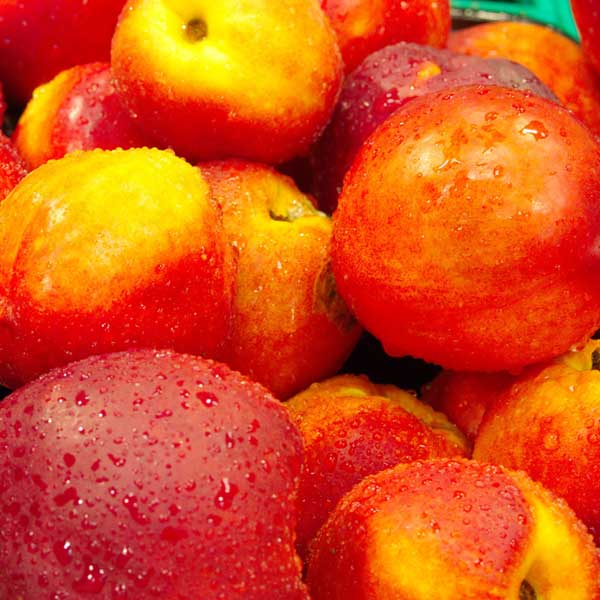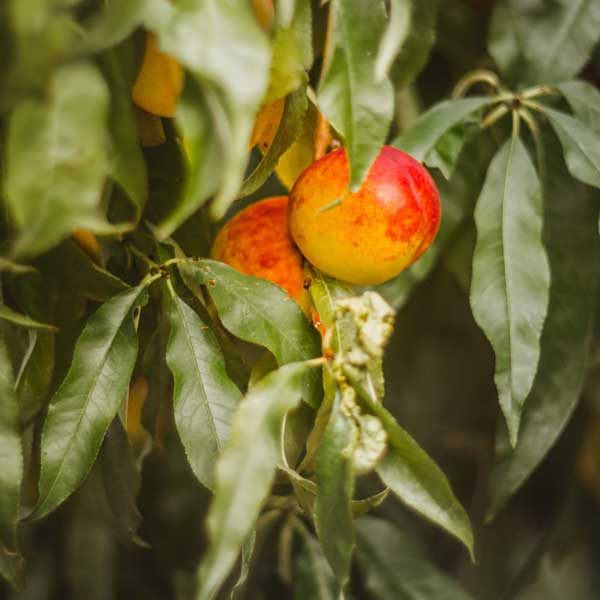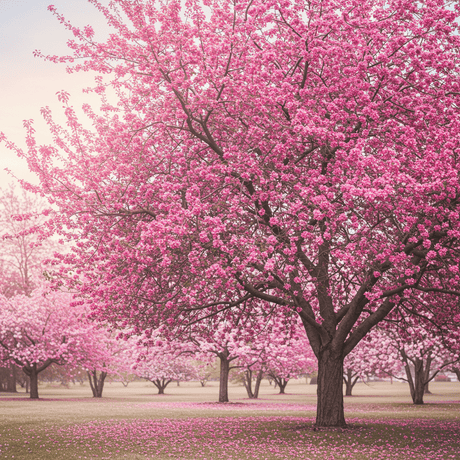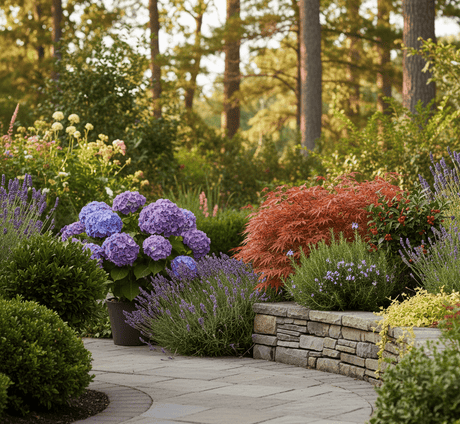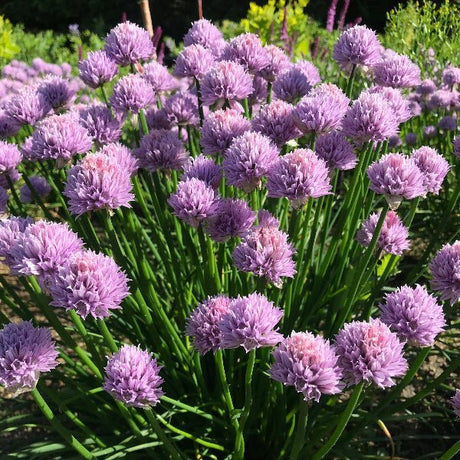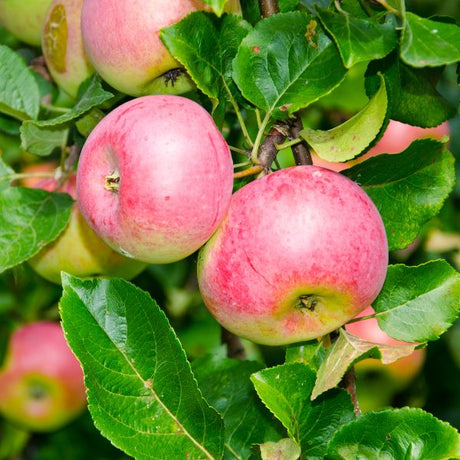Hardired Nectarine Tree
Prunus persica var. nucipersica 'Hardired'
Hardired Nectarine Tree - is backordered and will ship as soon as it is back in stock.
- Stay Protected with Plant Sentry ™
Plant Sentry™
Plant Sentry™

Plant Sentry™ Protected
Your order is protected by our compliance system that:
- Prevents restricted plants from shipping to your state
- Ensures plants meet your state's agricultural requirements
- Protects gardens from invasive pests and diseases
Delivery and Shipping
Delivery and Shipping
Delivery and Shipping
Fast, Safe Plant Delivery
Ships in 3-4 business days • Tracking provided • Weather protected
| Under $50 | $9.99 |
| $50 - $99.99 | $14.99 |
| $100 - $149.99 | $16.99 |
| $150 - $198.99 | $24.99 |
| $199+ | FREE |
✓ Zone-specific timing • ✓ Professional packaging • ✓ Health guarantee
Understanding Plant Options
Nature Hills offers plants in two main formats:
- Container Plants: Grown in pots with soil, sized by container volume and plant age
- Bare Root Plants: Dormant plants without soil, sized by height measurements
Container Plant Sizes
Container sizes indicate plant age and growing capacity rather than liquid volume equivalents. Our containers follow industry-standard nursery "trade gallon" specifications, which differ from standard liquid gallon measurements.
Young Plants (6 months to 18 months old)
| Container Size | Actual Volume | Metric Equivalent |
|---|---|---|
| 2" x 2" x 3" | 0.18 - 0.21 dry quarts | 0.20 - 0.23 dry liters |
| 4" Container | 0.31 - 0.87 dry quarts | 0.35 - 0.96 dry liters |
| 4.5" Container | 0.65 dry quarts | 0.72 dry liters |
| 6" Container | 1.4 dry quarts | 1.59 dry liters |
| 1 Quart | 1 dry quart | 1.1 dry liters |
| 5.5" Container | 1.89 dry quarts | 2.08 dry liters |
Established Plants (18 months to 2.5 years old)
| Container Size | Actual Volume | Metric Equivalent |
|---|---|---|
| 2 Quart | 2 dry quarts | 2.2 dry liters |
| #1 Container | 2.26 - 3.73 dry quarts | 2.49 - 4.11 dry liters |
| 5" x 5" x 12" | 3.5 - 4.3 dry quarts | 3.85 - 4.74 dry liters |
Mature Plants (2-4 years old)
| Container Size | Actual Volume | Metric Equivalent |
|---|---|---|
| #2 Container | 1.19 - 1.76 dry gallons | 5.24 - 7.75 dry liters |
| #3 Container | 2.15 - 2.76 dry gallons | 8.14 - 12.16 dry liters |
Large Plants (3-5 years old)
| Container Size | Actual Volume | Metric Equivalent |
|---|---|---|
| #5 Container | 2.92 - 4.62 dry gallons | 12.86 - 20.35 dry liters |
| #6 Container | 5.25 - 6.01 dry gallons | 23.12 - 26.42 dry liters |
| #7 Container | 5.98 - 6.53 dry gallons | 26.34 - 28.76 dry liters |
Bare Root Plants
Bare root plants are sold by height from the root system to the top of the plant. Plants may exceed minimum height requirements.
Common Sizes:
- Trees: 1 foot, 2 feet, 3 feet, 4 feet, 5 feet, 6 feet
- Shrubs & Perennials: 1 foot, 18 inches, 2 feet
Important Notes
Container Volume Specifications
- Trade Gallon Standard: Our containers follow industry-standard "trade gallon" specifications established by the American National Standards Institute (ANSI Z60.1) for nursery stock
- Volume Variations: Actual soil volume may vary due to plant root systems and growing medium settlement
- Age Indicators: Container size primarily indicates plant age and maturity rather than liquid volume equivalents
Growing Conditions
- Plant size can vary based on variety and growing conditions
- Container size helps indicate plant maturity and establishment level
- Larger containers generally mean more established root systems and faster landscape establishment
Seasonal Availability
- Bare root plants are available seasonally when dormant
- Container plants are available throughout the growing season
- Specific varieties may have limited availability in certain sizes
Questions?
For questions about specific plant sizes or availability, please contact our plant experts who can help you choose the right size for your landscape needs.
Plant Highlights
Hardired Nectarine Tree highlights at a glance!
-
Botanical Name
-
Brand
-
Growing Zones5, 6, 7, 8
-
Growth RateModerate
-
Mature Height
-
Mature Width
-
Leaf Color
-
Flower Color
-
Fall Color
-
Pollinator FriendlyYes
-
Pollinator Required
-
Bloom PeriodLate Spring
-
FragrantYes
Characteristics
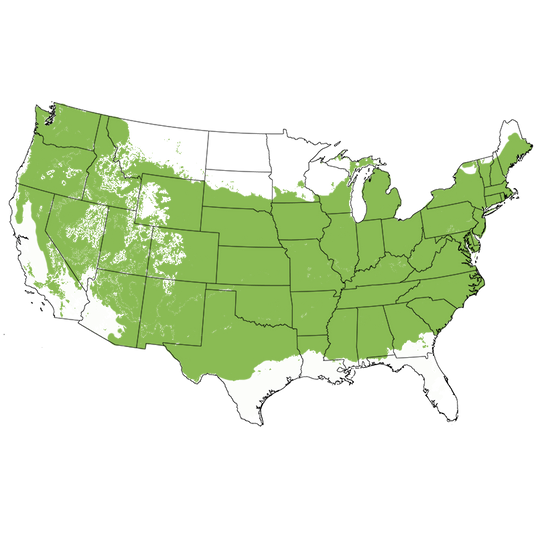
Growing Zones 5-8
Cold Hardy, Productive Hardired Nectarine Tree
- Mid-Season
- 700 Chill Hours
- Semi-Freestone
- Cold Hardy
- Self-Pollinating, But You’ll Get More Fruit With Partner Trees
- Attractive Pink Flowering Fruit Tree
- Beautiful Red-Blushed Fruit
- Tasty, Firm, Yellow Flesh
- Wonderful Fresh Eating
- Resistant to Bacterial Spot and Brown Rot
- Reliable Producer
Love the great taste of Nectarines? Now even northern gardeners can grow their own in backyard orchards. Hardired Nectarine (Prunus persica ‘Hardired’) was developed in Ontario, Canada, so you know it can withstand colder temperatures than other varieties.
Pretty pink flowers cover the branches in spring. This attractive, self-pollinating tree grows like gangbusters and produces a dependable crop. Consider adding at least two trees to increase the size of your yearly crop.
Gorgeous fruit features snappy skin with a red blush and rich, firm yellow flesh. The pit is semi-freestone, so it's easy to remove as you prep your fruit for a variety of uses.
Hardired is also great for fresh eating right off the tree. Dry the fruit to enjoy later in the year. Or, prep it for special preserves for your breakfast toast.
You'll also have a beautiful tree to enjoy. Watching the developing bright red fruit delivers outstanding ornamental value. The display starts in early summer and lasts through the mid-season harvest.
Place this tree front and center in your edible landscape. It looks great all season long.
Order Hardired Nectarine tree from the expert growers at Nature Hills today. It's a terrific option, even in cold winter zones.
How to Use Hardired Nectarine Tree in the Landscape
People across the country are re-discovering the joys of growing fruit trees. Edible Landscaping is a great way to increase food security and make the most of your sunshine!
Add Hardired as a specimen tree near your patio or picture window. You'll love seeing the blooms and developing fruit.
Try flanking either side of your front walkway with a pair of them. Or, use one at the corner of your house to anchor your foundation planting.
Allow the tree to grow to its full spread and height, or use summer pruning for size control. It's easy to keep fruit trees smaller. 8 feet and under makes for a manageable harvest.
Try Hardired in a hedgerow with other special fruit trees. Plant them from 5 to 12 feet apart on center, measuring from the trunk of one to the trunk of the next. Space them out according to how large you decide to grow your trees.
Our team says to "pick a height and keep it there." Be sure to watch our YouTube videos to learn more about Backyard Orchard.
#ProPlantTips for Care
Plant in full sun for the best result. Nectarines need at least 6 hours of direct sunlight for best results. Morning sunlight is best to dry the foliage quickly.
Nectarines must have well-drained soil. If you need to improve drainage, elevate your planting. Add soil in a mound 12 to 18 inches tall by 3 feet wide. You can also create a raised bed for planting. Elevated planting allows the root systems to access plenty of oxygen.
Provide a moderate amount of water on a regular basis. Mulch over the root system to cut down on surface evaporation.
Yearly summer pruning will control the height and spread to keep the tree at a manageable size. Sculpt the interior of the tree by removing crossing branches in late winter to increase the sunlight and air circulation in the canopy.
Nature Hills is proud to offer this special fruiting plant. Don’t wait to order this popular variety, Hardired Nectarine is in high demand.
Peach Tree Frequently Asked Questions
How long does it take for Hardired Nectarine Tree Peach Trees to bear fruit?
Nature Hills Nursery sells fruit trees with mature root systems that are already three to four years old, so you’ll enjoy fruit sooner than you would with younger trees! Expect a young peach tree to begin fruiting by the 3rd year after you plant it.
How Fast Do Hardired Nectarine Tree Peach Trees Grow?
Be sure to plant your peach in a sunny and well-drained location. Once your Hardired Nectarine Tree (Prunus persica 'Hardired') has been established (after the first year), it can typically add 12-18 inches of new growth in a growing season. If your plants are adding less than that in a season, it may be worth your while to check the fertility level.
Where do Hardired Nectarine Tree Peach Trees Grow Best?
Peach trees grow best in well-drained, fertile soil in at least 6 hours of full sun per day or more.
Do You Need 2 Peach Trees to Produce Fruit?
All peach trees are self-fertile, however planting more than one peach tree that blooms at about the same time, boosts yields on both trees and extends your harvest time!
Harvest Times for Hardired Nectarine Tree Peach Trees
Hardired Nectarine Trees are typically ready to harvest in July. Keep in mind exact harvest times are subject to change depending on the hardiness zones they’re being grown in.
Early-Season? Mid-Season? Late-Season? The terminology can be confusing for new peach tree growers. Weather, climate and your tree determine when it’s ripe.
When Should Hardired Nectarine Tree Peach Tree be Planted?
Bareroot peach trees can be planted in spring when they are available in your area. Container-grown peach trees can be very successfully transplanted all throughout the growing season. Check for first and last frost dates for your area with your local County Extension Office.
- Plant bareroot peach trees in the early spring.
- Plant container-grown trees anytime the ground is not frozen by digging a hole as deep as the soil line and twice as wide.
How Do I Find Hardired Nectarine Tree Peach Trees for Sale Near Me?
Make your life easier and your yard happier by shopping for peach trees at NatureHills.com online fruit tree nursery. You’ll find a massive selection of fruit trees for sale, including many lovely peach tree varieties!
Choose the right tree for your area by first finding your USDA growing zone by entering your zip code in the field above the Plant Highlights section on our product pages. Narrow down your options by plant hardiness zone, sun availability, and size requirements.
Place your order, knowing it’s backed by the Nature Hills Nursery product guarantee and protected by Plant Sentry™, which helps ensure regulated plant materials aren’t sent to prohibited areas.
Expect to receive your plants at the appropriate planting time for your growing zone when temperatures are safest for those plants that ship in fall, winter, or early spring.
Shop the selection of mature peach trees for sale at Nature Hills Nursery and place your order for Hardired Nectarine Tree Peach Tree today.
What shipping options do you offer?
NatureHills.com works closely with our growers and nursery professionals to ensure we ship when it is most appropriate for your area. Our goal is to deliver the hardiest plants by avoiding extreme high and low temperatures. Check out our shipping schedule for more information and to learn our wills and won’ts when it comes to shipping plants. Find your Hardired Nectarine Tree Peach Tree for Sale for sale here at NatureHills.com!

